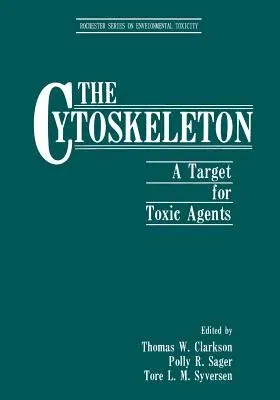Thomas W Clarkson
(Author)The Cytoskeleton: A Target for Toxic Agents (Softcover Reprint of the Original 1st 1986)Paperback - Softcover Reprint of the Original 1st 1986, 4 November 2011

Qty
1
Turbo
Ships in 2 - 3 days
In Stock
Free Delivery
Cash on Delivery
15 Days
Free Returns
Secure Checkout
Part of Series
Rochester Environmental Toxicity
Part of Series
Rochester Series on Environmental Toxicity
Print Length
261 pages
Language
English
Publisher
Springer
Date Published
4 Nov 2011
ISBN-10
1461292743
ISBN-13
9781461292746
Description
Product Details
Book Edition:
Softcover Reprint of the Original 1st 1986
Book Format:
Paperback
Country of Origin:
NL
Date Published:
4 November 2011
Dimensions:
25.4 x
17.78 x
1.5 cm
ISBN-10:
1461292743
ISBN-13:
9781461292746
Language:
English
Location:
New York, NY
Pages:
261
Publisher:
Weight:
489.88 gm

